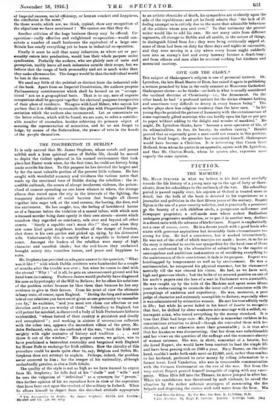GIVE GOD THE GLORY.*
TI1E subject of Shakespeare's religion is one of perennial interest. Dr. Lyttelton, the late Head-Master of Eton, has raised it again in publishing a sermon preached by him in the early summer at Worcester Cathedral. Shakespeare shows—so he thinks—no faith in what in usually considered the cardinal doctrine of Christianity—i.e., She Atonement. On the other hand, he had a profound instinct for the divine element lurking and sometimes very difficult to descry in every human being." The , earlier plays show lees religious tendency than the later ones. "In his young days he painted the picture of humanity with the victorious ease of some supremely gifted musician who can hardly open his lips or put pen to paper without adding to the delight and wonder of mankind." lie might, Dr. Lyttelton thinks, have "become a mere spectator of life, of its whimsicalities, its fun, its beauty, its endless variety." Hamlet proved that so supremely great a man could not remain in this position. Had he lived longer, the preacher has convinced himself, Shakespeare would have become a Christian. It is interesting that Canon Scott Holland, from whom he quotes in an appendix, agrees with Dr. Lyttelton, and that Mr. Clutton-Brock, whom he quotes also, expresses more vaguely the same opinion.












































 Previous page
Previous page